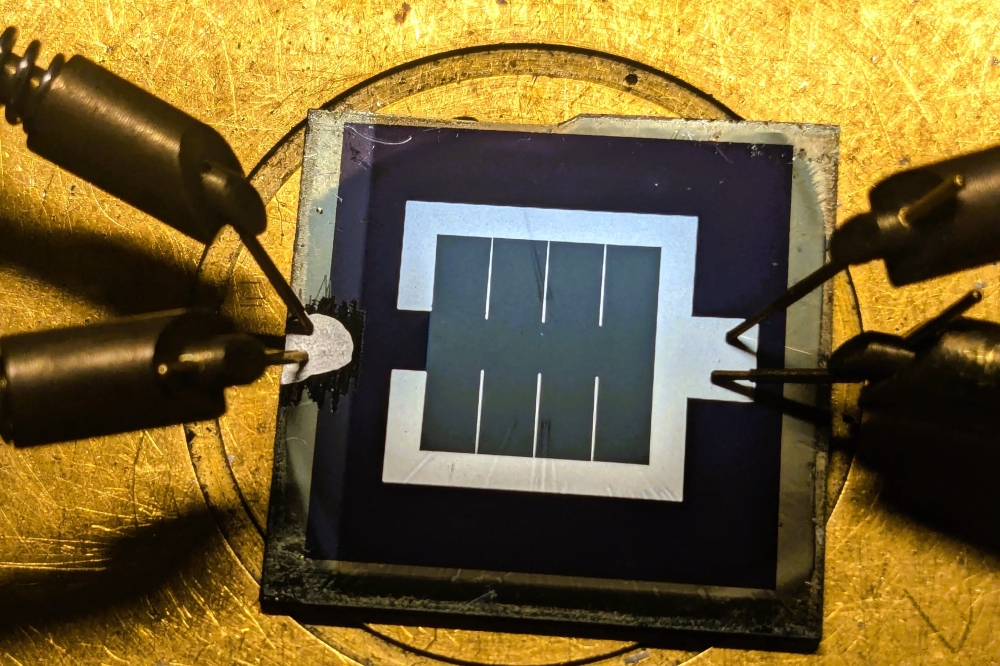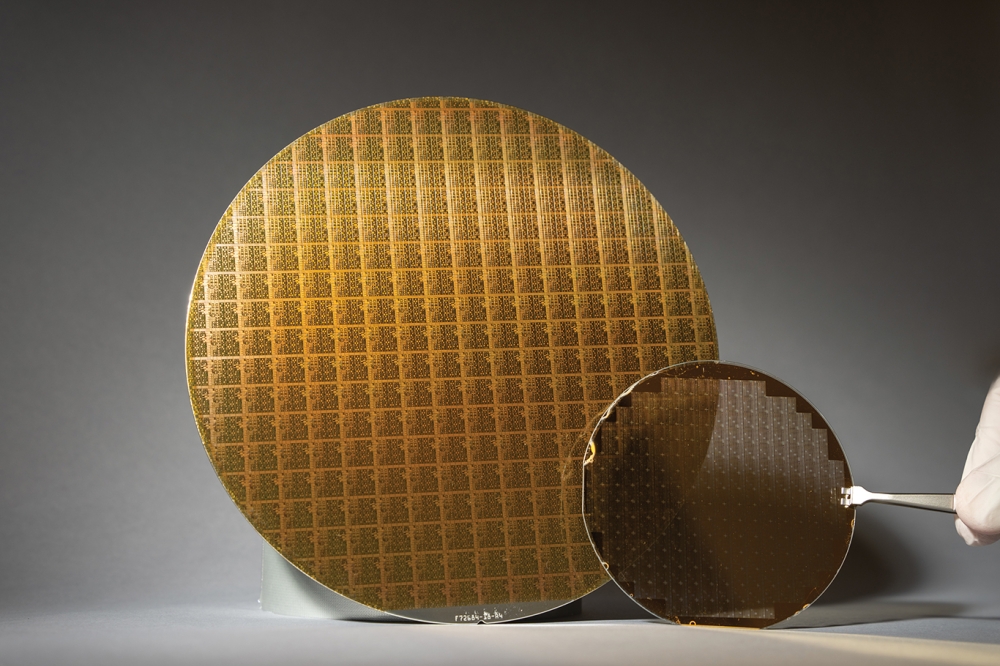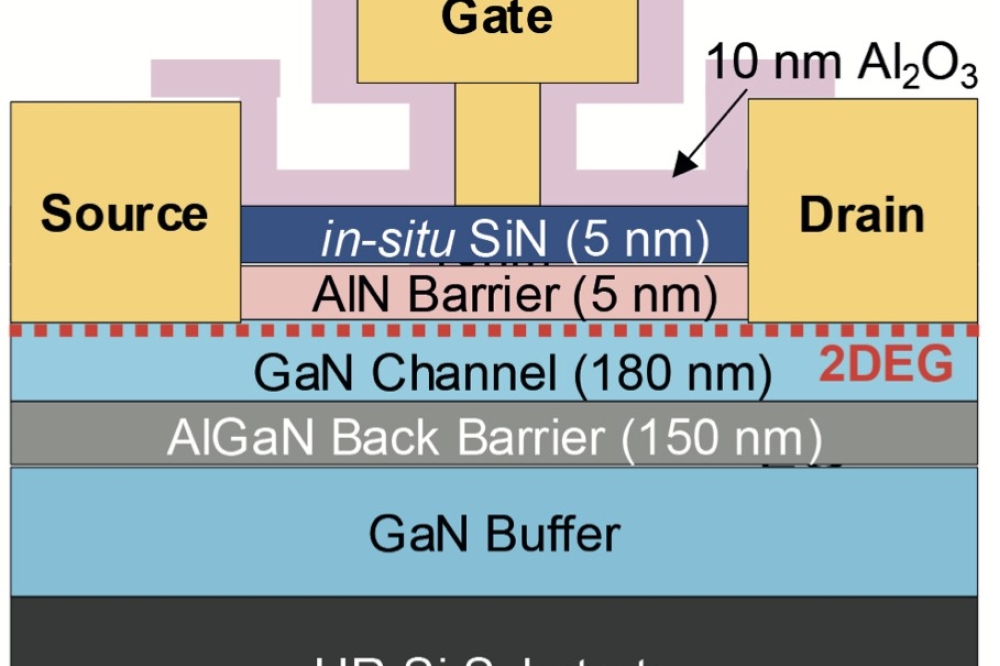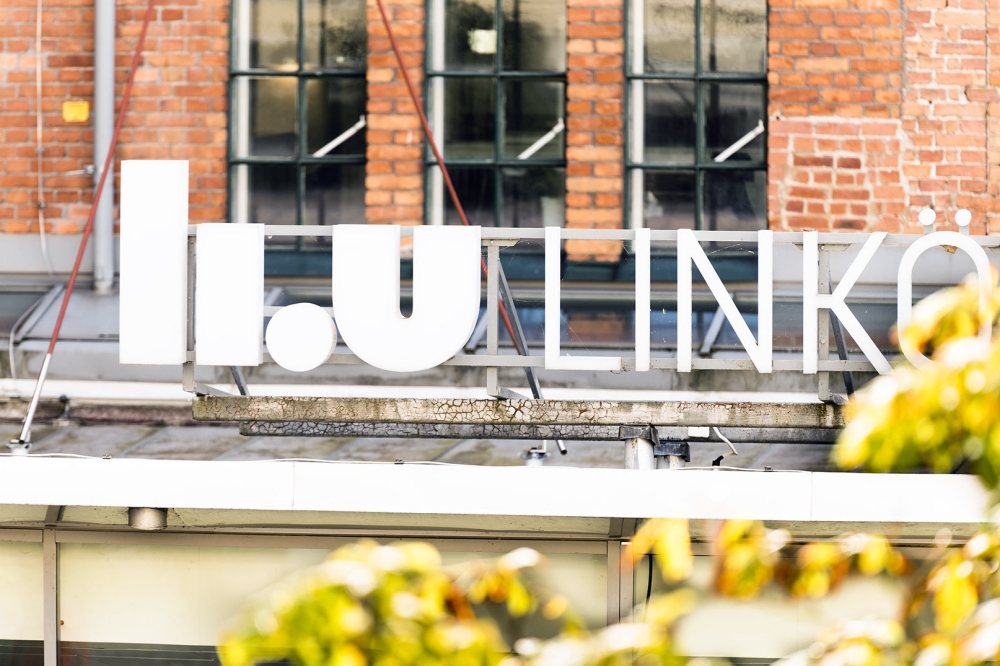IQE: semiconductor cluster ambition
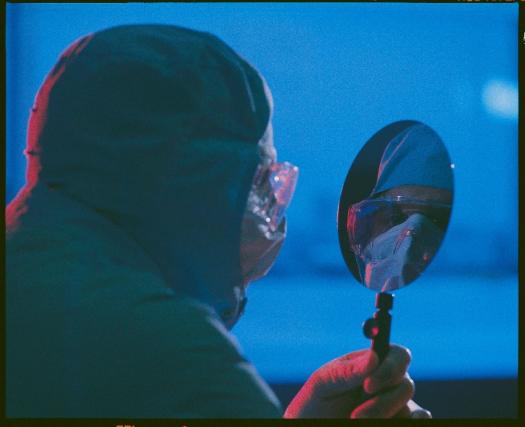
Will the IQE-Cardiff University Compound Semiconductor Centre lead to a fifth semiconductor cluster in Europe, asks Compound Semiconductor.
Up and coming Cardiff-based facilities are set to boost III-V on silicon fabrication across Europe.
Earlier this week, IQE and Cardiff University launched the UK-based Compound Semiconductor Centre.
Backed by tens of millions of pounds in funds from Welsh government and the university, the facility will combine Cardiff University research with IQE's industrial scale production to push today's III-V-on-silicon related research towards commercial production.
Right now, IQE is in the process of transferring hardware, infrastructure and intellectual property to the centre. And as recently appointed centre director, Wyn Meredith, asserts: "The CSC is going to bridge the divide between fundamental research and industry."
The latest announcement follows the launch of the Institute of Compound Semiconductors late last year. Also Cardiff University driven, this multi-million pound lab will explore novel growth methods and material combinations that industry cannot necessarily accommodate.
As Meredith, the former commercial director of UK-based Compound Semiconductor Technologies Global, highlights, the UK and wider European communities have lacked the investment and commitment to commercialise their early stage research and development.
But together, the two Cardiff-based facilities intend to convert innovation in the research lab into commercial products and services.
Ready for manufacture
So-called Technology Readiness Levels - TRLs - are widely used to provide a measure of technology maturity along a scale from basic concept, TRL1, to established and mature technology, TRL9.
To a certain extent across Europe, the higher TRLs have been referred to as the 'Valley of Death' as early-stage research has flourished but commercialisation fails.
With this in mind, the two new facilities are being set up to drive research up the TRL scale from core research to commercialisation.
As such, the new Institute of Compound Semiconductors will provide a research focus for compound semiconductor development from initial ideas through to proof of concept, covering TRLs 1 to 3, including a major infrastructure investment in wafer fabrication. And then, the CSC will realise prototyping, product development and skills development, moving the research up to TRL6.
"We have a lot of infrastructure at the low TRL levels," points out Meredith. "But in this way we can start to bridge our 'Valley of Death'."
But while the Institute of Compound Semiconductors and CSC form the first two parts of the IQE-Cardiff University 'Compound Semiconductor Foundation', a third part exists. This final piece in the puzzle, will be the establishment of production-ready pilot lines to exploit the products and processes developed by the Institute and CSC.
To this end, IQE is already heading up a Pan-European project application under a Horizon2020 flagship ECSEL programme.
The ECSEL - 'Electronic Components and Systems for European Leadership' - project has been set up to drive a globally competitive electronics industry in the EU. To gain funding in this programme, IQE, alongside forty supply chain partners, have proposed setting up twenty pilot lines across a range of technologies, enabled by compound semiconductors.
Crucially, for IQE, this endeavour, combined with Cardiff's Institute of Compound Semiconductors and CSC, could see a UK-based compound semiconductor cluster centred on the growing facilities in Cardiff. And while such a cluster would follow the primarily silicon-based clusters around Eindhoven, Dresden, Grenoble and Leuven, it would actually be the first cluster to be based on compound semiconductors.
"We're currently putting the building blocks in place to say, look, we have a credible research infrastructure that will lead to a credible innovation structure, which in turn will lead to a clustering of the compound semiconductor supply chain around a Cardiff-based major manufacturing capability," highlights Meredith.
"[The Institute and CSC] will help to leverage the private and public investment that is required for a venture of this size that involves pilot line programmes with larger European Union-funded projects," he adds.
So what happens next? IQE is busy transferring growth equipment to the new centre, which alongside additional equipment investments will see several reactors installed in the next year.
"We have three brand new reactors on order with two more in the pipeline," says Meredith. "Volume tools will have 150 mm capabilities and will be required to scale up for GaN-on-silicon research. In addition we have key scale up programmes in photonics, such as VCSEL and solar cell products."
IQE is currently the anchor company involved in the activities. However over time, more industry support is expected to come from the companies across Europe, that are associated with the Pilot Line activities, and those already engaged with research and development at IQE and Cardiff University.
IQE and ICS staff will be co-located at the CSC, developing GaN-on-silicon RF and power electronics epitaxial solutions as well as scaling GaAs and InP photonics epitaxy technology to 150 mm wafers.
"We also have very strong development in Cardiff relating to optic communications and InP-based devices, so will be looking to scale up here for applications such as fibre-to-the-home and data-centre communications," adds Meredith.
Both facilities are expected to come online within the next three years, and in the coming months, the Institute of Compound Semiconductors and CSC will define joint roadmaps detailing core research themes and how to exploit this for commercialisation.
"IQE's vision is to exploit manufacturing facilities here to produce a major European facility," says Meredith. "The scale and vision inherent in this plan is huge, and joining was an opportunity that I just couldn't refuse."

